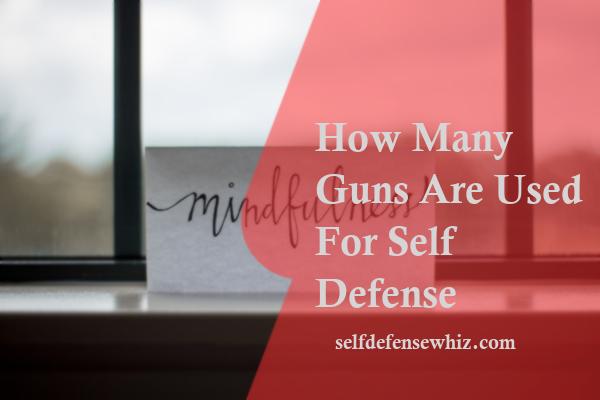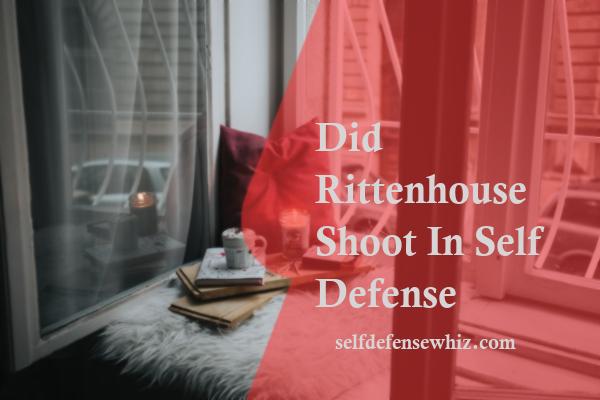Can A Felon Use A Gun For Self Defense
Can a felon use a gun for self-defense? This question sparks intense debates and concerns regarding the rights and limitations of those with a criminal history. **In short, the answer is no.** Being convicted of a felony typically entails the loss of various civil liberties, including the right to possess firearms. However, the issue is far more complex than a simple yes or no, as it intertwines legal complexities, safety concerns, and discussions about rehabilitation and second chances. Let’s dive deeper into this contentious topic to gain a better understanding of the factors at play.
Can A Felon Use A Gun For Self Defense
Whether or not a felon can use a gun for self-defense is a complex and contentious topic. In the United States, the possession of firearms by felons is generally prohibited by federal law under the Gun Control Act of 1968. This means that felons are not allowed to possess, own or use firearms, including for self-defense purposes. Violating this law can result in severe penalties, including imprisonment.
One argument in favor of allowing felons to use firearms for self-defense is based on the constitutional right to bear arms, as guaranteed by the Second Amendment. Proponents argue that denying felons the right to self-defense with a firearm infringes upon their basic rights. On the other hand, opponents contend that the safety of society should take precedence over the individual rights of felons, considering their past criminal behavior.
It is worth noting that exceptions may exist for felons who have had their rights restored through a process such as a pardon or expungement. However, these exceptions are rare and vary significantly depending on the jurisdiction. In general, those with felony convictions who wish to defend themselves should explore non-lethal alternatives, such as pepper spray or personal alarm systems, which are typically legal for self-defense even for felons.
Pro-tips:
- Under federal law in the United States, felons are prohibited from possessing firearms for any reason, including self-defense.
- The Second Amendment right to bear arms is often invoked as an argument for allowing felons to use firearms for self-defense.
- Exceptions to the firearms prohibition for felons exist in rare cases, where rights have been restored through a legal process.
- Felons who want to protect themselves should seek legal alternatives, such as non-lethal means of self-defense.
What Are The Legal Restrictions On Felons Owning Firearms?
In the United States, the Second Amendment guarantees the right to bear arms for law-abiding citizens. However, when it comes to felons, there are strict regulations in place that prohibit the possession and use of firearms. Generally, felons are prohibited from owning firearms due to their criminal history and the perceived risk they pose to public safety. This is largely based on the principle that individuals who have previously engaged in criminal activities are more likely to misuse firearms or pose a threat to others.
While the Second Amendment protects the right to self-defense, it does not grant felons the same privileges. The justification for this restriction is to prevent the possibility of repeat offenses or the escalation of violence beyond what is necessary for self-defense. There are concerns about the potential for felons to use firearms in criminal activities or to regain control over their victims, as well as the difficulty in assessing whether a particular felon poses a genuine threat or has been successfully rehabilitated.
Some argue that denying felons the right to use firearms for self-defense violates their constitutional rights and leaves them vulnerable in dangerous situations. They contend that individuals who have served their sentences and reintegrated into society should have the same right to protect themselves as any law-abiding citizen. However, the counter argument maintains that there are alternative means of self-defense available to felons, such as non-lethal weapons or seeking assistance from law enforcement, which can effectively ensure their safety without the need for firearms.
Can Felons Have Their Gun Rights Restored?
Whether or not a felon can use a gun for self-defense is a complex and highly debated topic. Generally, individuals who have been convicted of a felony lose their right to own or possess firearms. This restriction is imposed as a consequence of the criminal conviction and aims to prevent further criminal activity. However, the question arises as to whether denying a felon the right to use a firearm for self-defense infringes upon their fundamental right to protect themselves.
Those who argue in favor of allowing felons to use guns for self-defense assert that the right to self-defense is a basic human right that should not be taken away, regardless of past convictions. They argue that every person has the inherent right to protect themselves and their loved ones from imminent harm or death. Furthermore, it is argued that denying felons the ability to defend themselves with firearms may disproportionately affect certain vulnerable groups, such as individuals living in high-crime areas or those at risk of becoming victims of domestic violence.
On the other hand, opponents of felons using guns for self-defense highlight the potential dangers and risks associated with allowing individuals with criminal records to possess firearms. They argue that felons have already demonstrated a propensity for engaging in illegal activities and therefore should not be trusted with lethal weapons. Allowing felons to possess firearms could potentially increase the likelihood of gun violence and pose threats to public safety.
In conclusion, the issue of whether a felon should be able to use a gun for self-defense is a contentious subject. While proponents argue that it is a basic human right that should not be taken away, opponents highlight the potential risks to society. Ultimately, the decision on whether or not felons should be able to use guns for self-defense remains a matter of legal interpretation and societal values.
Is There A Difference Between Federal And State Laws Regarding Felons And Gun Ownership?
Whether a felon can use a gun for self-defense is a complex and highly debated topic. In the United States, individuals convicted of a felony lose their right to own or possess firearms under federal law. This restriction is part of the Gun Control Act of 1968, which aims to prevent those with a criminal record from accessing firearms. Therefore, from a legal standpoint, felons are generally prohibited from using guns for self-defense.
However, some argue that the Second Amendment of the United States Constitution grants the right to self-defense to all citizens, including felons. They believe that denying felons the ability to possess a firearm infringes upon their constitutional rights. Moreover, proponents of this viewpoint argue that self-defense is a fundamental human right that should not be taken away arbitrarily based on prior criminal convictions.
On the contrary, opponents argue that denying guns to felons is necessary to protect society and prevent potential illegal activities. They believe that felons have already demonstrated a propensity for violence or criminal activity, making it unsafe to grant them access to firearms. They argue that alternative means of self-defense, such as non-lethal weapons or personal security measures, should be pursued by felons instead. Striking a balance between protecting individual rights and ensuring public safety is undoubtedly a challenge in this context.
Can A Felon Use A Gun For Self-Defense In Their Home?
One of the most sensitive issues when it comes to firearms and self-defense is whether a felon has the right to use a gun for personal protection. The legality surrounding this topic can vary from country to country and state to state. In the United States, for instance, federal law prohibits felons from possessing firearms. However, some states may have provisions that allow certain felons to petition for the restoration of their gun rights.
The argument for allowing felons to use guns for self-defense is centered around the fundamental right of individuals to protect themselves from immediate danger. Proponents argue that if a person’s life or physical well-being is in imminent peril, they should have the ability to defend themselves using any means necessary, including a firearm. Some argue that prohibiting felons from using guns for self-defense violates their Second Amendment rights, as even felons have the right to protect themselves.
On the other hand, opponents assert that allowing felons to possess firearms poses a significant risk to public safety. Their concerns stem from the fact that felons have already displayed a disregard for the law and may be more likely to use a firearm inappropriately, potentially escalating dangerous situations. Furthermore, critics argue that felons who are prone to violence may not be adequately trained or mentally stable enough to handle a gun responsibly, raising the risk of unintended harm to innocent individuals.
What Are The Potential Consequences For A Felon Using A Gun For Self-Defense?
Whether a felon can use a gun for self-defense largely depends on the laws of the jurisdiction they reside in. In the United States, the possession of firearms by convicted felons is generally prohibited under federal law. The rationale behind this prohibition is to prevent individuals with a history of criminal activity from possessing a weapon that could potentially be used to commit further crimes. However, there are some exceptions and variations in state laws that may affect a felon’s ability to use a firearm for self-defense.
In some states, the law allows for certain felons to have their gun rights restored or to obtain a permit for self-defense purposes. This is often based on the severity of the felony conviction and the length of time since the individual completed their sentence. However, even in these cases, individuals may still face limitations, such as the type of firearm they are allowed to possess or the requirement to notify law enforcement of their possession.
It is important to note that the use of deadly force for self-defense is subject to strict legal standards in many jurisdictions. Even if a felon is legally permitted to possess a firearm, they may still be required to prove that their use of the weapon was justified under the principles of self-defense. This typically involves demonstrating an imminent threat of death or serious bodily harm and showing that the use of a firearm was a reasonable response in the situation.
In summary, while there may be some circumstances in which a felon can use a gun for self-defense, these situations are quite limited and subject to legal restrictions. It is crucial for individuals with felony convictions to familiarize themselves with the laws of their jurisdiction and consult with legal professionals to ensure they act within the boundaries of the law.
Conclusion
In conclusion, the question of whether a felon can use a gun for self-defense is a complex and heavily debated issue that varies across jurisdictions. While the Second Amendment grants individuals the right to bear arms, this right may be limited or restricted for felons due to their criminal past. Laws prohibit felons from possessing firearms in order to ensure public safety and prevent potential misuse. However, some states provide pathways for felons to restore their gun rights through legal processes such as pardons or expungements. Ultimately, it is crucial for individuals with felony convictions to be well-informed about their specific state laws and consult with legal professionals to understand their rights and options regarding self-defense.







